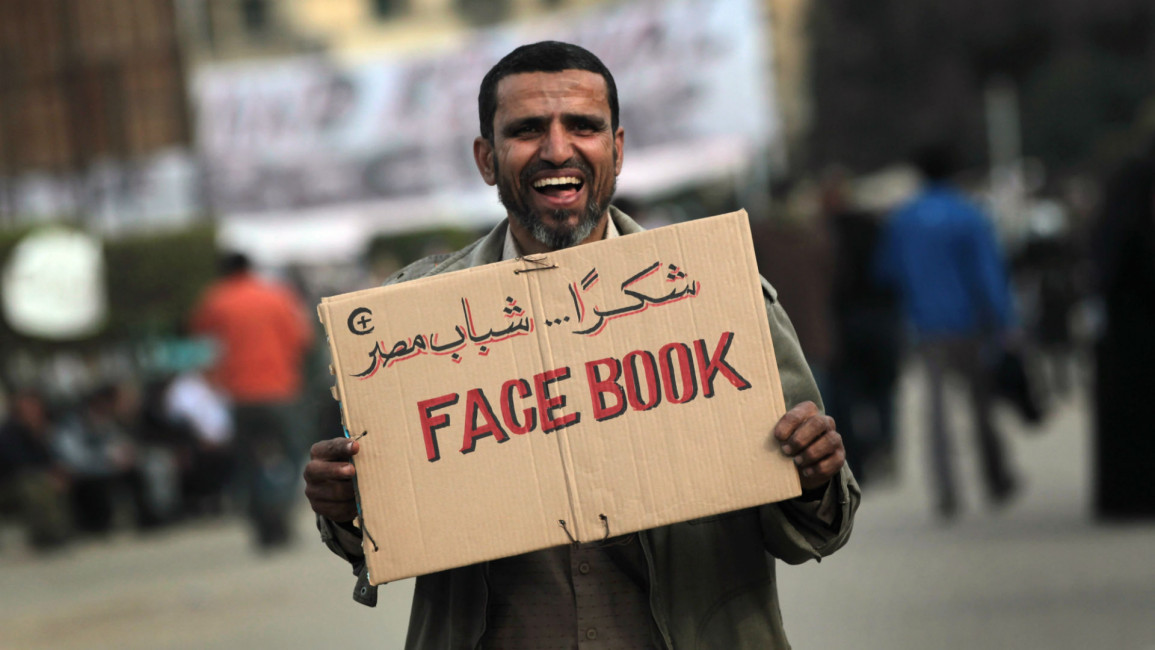Egypt may impose 'Facebook tax' to monitor online activity
An Egyptian member of parliament has proposed a draft law that would impose a tax on social media users in a bid to "counter terrorism".
Riyad Abdel Sattar said on Saturday that users of websites such as Facebook and Twitter should pay monthly "registration fees" that would allow the state to closely monitor activity online.
The move comes after Palm Sunday bombings claimed by the Islamic State group killed 45 people at churches in the cities of Tanta and Alexandria.
"This idea has come out the current conditions in the country such as the terrorism and conspiracies from organisations and states that have attacked our social unity," Abdel Sattar said during a phone-in with a local talk show.
"There would be a monthly tax for all social media users of five or ten pounds in order to allow the state to monitor it and prevent terrorists from using it to their advantage," he said, denying reports that he had suggested a tariff of 200 Egyptian pounds ($11) each month.
"This is not an issue of money; this is to give the government total control over all social media pages and to be able to professionally track these sick individuals sending coded messages and plans to terror groups," Abdel Sattar added.
Parliament last Tuesday unanimously approved a three-month state of emergency declared by President Abdel Fattah al-Sisi in the aftermath of the church bombings.
The emergency law expands police powers of arrest, surveillance and seizures and can limit freedom of movement.
Abdel Sattar's proposed legislation has already faced opposition from some of his peers.
Lawmaker John Talaat slammed the bill as "draconian" and said the next step would be taxes on "breathing air".
"Facebook is a global corporation based outside of Egypt it would be almost impossible to impose a fee on its use. The member of parliament should be pushing for lower internet provider costs despite the bad service," Talaat said.
Social media played a pivotal role in the 2011 uprising that ousted longtime leader Hosni Mubarak, but since a 2013 military coup the government has clamped down on internet freedoms.
During the popular uprising, Egypt severed all online activity in a failed attempt to crack down on the mass street protests organised through sites such as Facebook and Twitter.
A deal with a US cybersecurity firm in 2014 gave Egyptian authorities unprecedented abilities to comb through personal data of internet users, according to BuzzFeed News.
In 2015, Egypt also reportedly blocked Facebook's Free Basics Internet service after the company refused to give Egyptian authorities the ability to spy on users.
Another lawmaker has recently called for the "execution" of social media activists who criticise the state.



